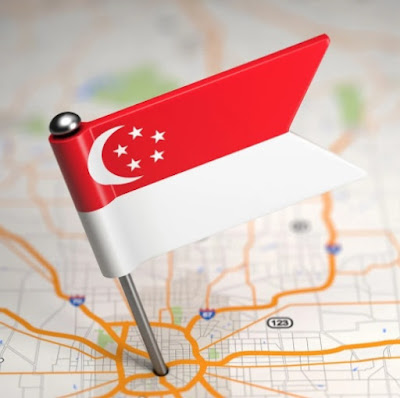SINGAPORE - PAYROLL & STATUTORY NORMS
Payroll Concepts & Definitions:
Gross Monthly Income From Work refers to income earned
from employment.
|
|
|
For employees, it
refers to the gross monthly wages or salaries before deduction of employee
CPF contributions and personal income tax. It comprises basic wages, overtime
pay, commissions, tips, other allowances and one-twelfth of annual bonuses.
The concepts and definitions used conform to international guidelines
recommended by the International Labour Organisation.
What constitutes a salary?
Singapore is one of the few countries that do not have a minimum salary requirement. Based on the Employment Act of Singapore, salary refers to all remuneration, including allowances payable to an employee for work done under the basis of contact of service. This is typically based on a mutual agreement between the employer and the employee.
Statutory Payroll Contributions:
The Central Provident Fund (CPF) is a mandatory contribution by the employer and employee. An employee, who is Singaporean or Permanent Resident (PR) of Singapore, and employers are obliged to make CPF contributions based on the rates set by the CPF board. The rates differ based on the employee's age, and also the number of years after obtaining PR status. Employers are required to pay the employer's and employee's share of CPF contribution monthly for all employees within a time frame of 14 days after the end of the month. Employers who fail to do so might face penalties or fines.
Income Reporting and Taxes
If a company has 15 or more employees for the entire year or have received the "Notice to File Employment Income of Employees Electronically", company must submit employees' income information to IRAS electronically by 1st March every year under the Auto Inclusion Scheme. This information will be used by IRAS for their assessment of employees' tax liability. Additionally, if your company hires foreign workers, you must notify IRAS and seek tax clearance for the foreign employees by filling Form IR21 at least one month before the employee ceases employment in Singapore, is on an overseas posting or leaves Singapore for a period that exceeds three months. This is to ensure that all foreigners working in Singapore duly fulfills their tax liabilities.
Mandatory Itemised Payslips
With effect from 1 April 2016, the Ministry of Manpower has mandated that all employers are required to issue itemised payslips with a list of key employment terms (KETs) to all employees covered under the Employment Act. The payslips must include key items such as the full name of employer and employee, date of payment, basic salary etc. A full list of the KETs can be found on the MOM website. Employers must also keep a record of all the payslips issued for at least two years for current employees, and one year after the employee leaves the company. Companies who fail to comply with this new legislation will be liable to a fine between S$100 to S$200 per employee per occurrence. (Click here to know more about the itemised payslip.)
KETs must include the items below, unless the item
is not applicable. For example, if the employee is a PME and overtime pay
does not apply, the KETs issued do not need to include items 11 to 12.
There are many other considerations and statutory requirements that one needs to be aware of. Always ensure that you are kept up-to-date with the latest legislatives changes, so as to avoid costly mistakes.
Mandatory levies, contributions and statutory requirements:
Besides Central Provident Fund (CPF)
contributions, employers are also required to make the following monthly
contributions:
Statutory reporting requirements:
From Year of Assessment 2017, IRAS requires that employers who
have (i) received notice to file their employment income electronically or
(ii) 10 or more workers in their employment during the entire year must
submit their employees’ income information to IRAS electronically by 1st Mar each year.
In addition, employers with foreign employees must seek tax
clearance for their foreign employees by filing Form IR21 at least one month
before such employee ends his employment, commences an overseas posting, or
leaves Singapore for three months or more.
|




No comments:
Post a Comment